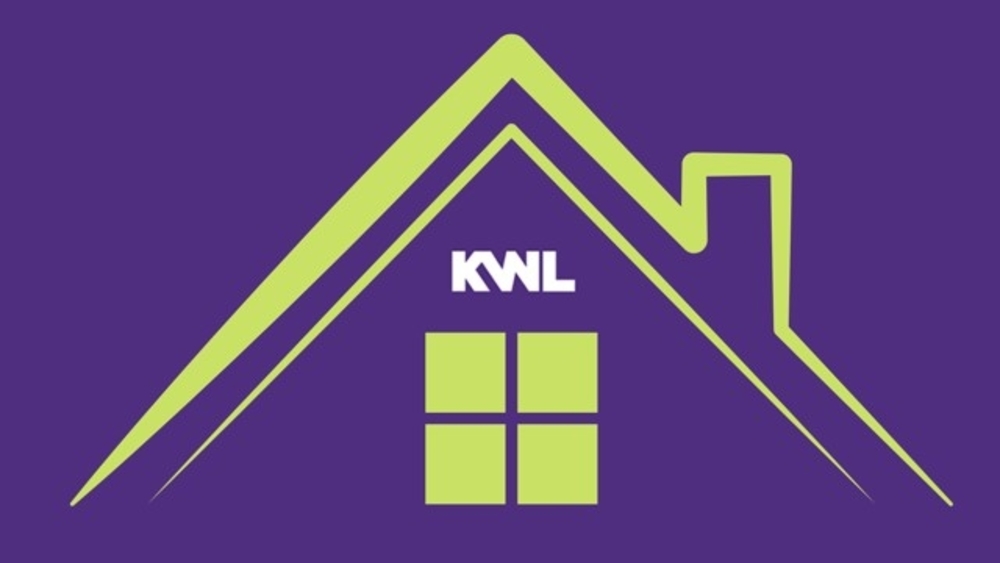Greener Homes
KWL’s Environmental Group aims to reduce carbon emissions across the business year on year and we hope that the activity undertaken at KWL will encourage other businesses in this region to tackle climate change too.
The UK target for net zero greenhouse gas by 2050 won’t happen on its own. We all have a part to play, as government said; a moral obligation to leave the planet in a better condition than we inherited.
Therefore, we also hope to inspire local people to make changes at home.
Here are some tips to navigate your way to a more environmentally friendly household.
Reuse, reduce, recycle!
Most of us now use the blue bins to recycle a lot of household items, however plastic, especially single use plastics are still a huge problem for the planet.
Half of all plastic ever made has been manufactured in the last fifteen years, most of this contains chemicals to make it stronger, meaning that your waste could take up to 400 years to break down.
Simple changes in the home such as reusable water bottles and non-disposable cutlery for work and school, can help shrink your carbon footprint effectively.
Toothbrushes
How many toothbrushes do you use each year and how many does this add up to in your lifetime? Every plastic toothbrush that has ever been discarded is still either in landfill or in the ocean and each toothbrush will take around 1000 years to decompose. Bamboo toothbrushes can be a great alternative.
Sustainable travel
It’s not always possible, but could you walk, cycle or use public transport to get to work?
Leaving the car at home even for just a few days each week will reduce your personal carbon footprint. Driving does seem like the easiest and fastest option, but cycling or using public transport creates much less pollution – you could save money too.
Another alternate is car sharing – if you live near to your colleagues, why not arrange to collect each other every now and then.
Save energy on appliances
Electrical appliances left on sleep mode are still using energy. Before going to bed and especially when you go away on holiday, unplug your devices from the wall sockets. This saves wasted energy and money. Each household in the UK spends around £50-£86 per year on electric appliances that have been left on standby mode.
Choosing a plant based option
By simply reducing meat consumption, you can reduce carbon emissions and help the planet. Emissions occur at every stage of meat food production, from processing and packaging, to serving it on your plate.
Vegetarian alternatives are available in the majority of British supermarkets and specialist food stores. Simply swapping your breakfast sausage for a vegetarian alternative is a simple way of reducing your carbon footprint and caring for the planet. Oat milk is good alternative to dairy, oats use 80% less land than dairy cows.
Putting his money where his mouth is, the UK business secretary, Kwasi Kwarteng is moving towards a “full vegan diet” to help tackle climate change, saying people will need to make lifestyle changes if the government is to meet its new emissions target of a 78% reduction on 1990 levels by 2035.
Some studies show that halving meat consumption could reduce emissions by 20-30% per person.
Eating seasonal foods
By consuming foods that are grown around the same time you eat them minimises the amount of time it takes for fresh fruit and vegetables to get from the ground or tree to your plate. Carbon emissions are then decreased by reducing the distance your food has to travel.
Second hand clothing
Clothes aren’t always designed to last and every year in the UK 350,000 tonnes of clothes go to landfill. Buying some second hand clothing limits the negative environmental impact of the textile industry, reducing carbon emissions and saves billions of litres of water each year that is needed to manufacture fast fashion.
Donate
Donating clothing to charity can help your home become more eco-friendly. School uniforms can often be donated back to schools as children grow out of them.
Daily tips
- Look for renewable energy providers
- Dry washing outside where possible rather than using a tumble dryer
- Wash clothes on 30 degrees
- Take waste paint and oil to a disposal centre
- Use ice cube trays rather than ice cube disposable bags
- Use a push lawnmower rather than electric or battery
- Compost everything you can
- Change home lighting to LED
- If something breaks, see if can be repaired rather than replaced
- Look for eco-friendly cleaning products – we have local manufacturers
- Grow your own fruit and vegetables
- Don’t pour milk down the drain
- Only use the shower to rinse rather than constant flow
- Plant a patch of wild flowers for the bees and butterflies

